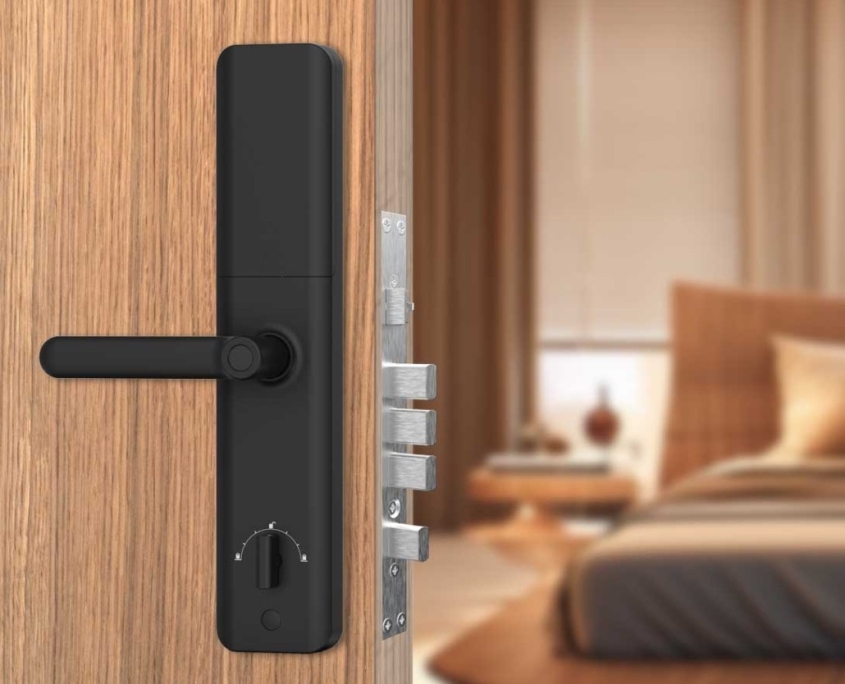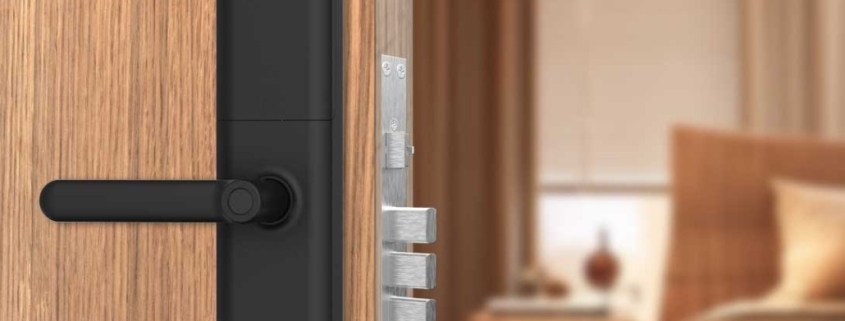How Secure Are Electronic Locks?
Electronic locks have surged in popularity across the U.S., offering keyless convenience, remote access, and sleek modern designs. But with rising concerns about cybersecurity and physical break-ins, many Americans wonder: Are electronic locks really secure?
The short answer: Yes, but it depends on the type, brand, and how you use it. High-quality electronic locks provide strong security—often better than traditional locks—but cheaper or poorly installed models can be vulnerable.
In this guide, we’ll break down:
-
How electronic locks compare to traditional deadbolts
-
Potential security risks (hacking, lock picking, and more)
-
Which types of electronic locks are the most secure
-
Tips to maximize your lock’s security
By the end, you’ll know whether an electronic lock is the right choice for your home and how to keep it as secure as possible.
1. Electronic Locks vs. Traditional Locks: Which Is More Secure?
Many people assume that mechanical locks (like deadbolts) are inherently more secure because they lack digital components. However, electronic locks have several security advantages:
Pros of Electronic Locks
No Physical Keys to Copy or Lose – Traditional keys can be duplicated, stolen, or lost, while electronic locks use codes, fingerprints, or smartphone access.
Auto-Locking Features – Many smart locks automatically relock after a set time, preventing accidental unlocked doors.
Remote Monitoring & Alerts – Smart locks notify you if someone enters, providing real-time security updates.
Temporary Access Codes – Great for guests, Airbnb hosts, or service workers—no need to hand out physical keys.
Stronger Bolt Mechanisms – Many electronic locks use motorized deadbolts that resist forced entry better than spring latches.
Cons of Electronic Locks
Battery Dependency – If batteries die and there’s no backup key, you could be locked out.
Potential Hacking Risks – Some Wi-Fi-enabled locks can be targeted by hackers (though rare).
Higher Cost – Quality electronic locks cost more upfront than basic deadbolts.
Bottom Line: A well-made electronic lock can be more secure than a traditional lock, but only if installed correctly and maintained properly.
2. Can Electronic Locks Be Hacked? Understanding Cybersecurity Risks
One of the biggest concerns about electronic locks is hacking. While most break-ins still happen through forced entry (kicking in doors, breaking windows), digital vulnerabilities are a real consideration.
A. Types of Electronic Lock Hacking Risks
-
Bluetooth & Wi-Fi Vulnerabilities
-
Some smart locks with weak encryption can be intercepted by nearby hackers.
-
Example: In 2016, researchers found a flaw in a popular smart lock that allowed hackers to unlock it via Bluetooth spoofing.
-
-
Code Guessing or Brute Force Attacks
-
If a keypad lock allows unlimited attempts, a thief could guess the code.
-
Solution: Look for locks that lock out after multiple failed attempts.
-
-
RFID & Fob Cloning
-
Some electronic locks use RFID cards or fobs, which can sometimes be copied.
-
Solution: Use rolling-code technology (like garage door openers) to prevent cloning.
-
-
Physical Tampering (Bypassing the Lock)
-
Some low-quality electronic locks can be pried open or manipulated with tools.
-
Solution: Choose locks with anti-tamper alarms and reinforced strike plates.
-
B. How to Prevent Hacking
Buy from Reputable Brands
Use Strong, Unique PIN Codes (Avoid “1234” or birthdays)
Enable Two-Factor Authentication (2FA) (For smart locks)
Keep Firmware Updated (Manufacturers patch security flaws)
Good News: Most break-ins are opportunistic—burglars prefer easy targets. A well-secured electronic lock is still a strong deterrent.

3. Which Electronic Locks Are the Most Secure?
Not all electronic locks are equal. Here’s how different types rank in security:
Best for Security: Smart Deadbolts with Encryption
-
Why They’re Secure:
-
AES-128 or 256-bit encryption (same as banks use)
-
Auto-locking features
-
Tamper alerts
-
Good but Slightly Less Secure: Keypad Locks (No Wi-Fi)
-
Why They’re Secure:
-
No wireless hacking risk
-
Still allows temporary codes
-
Harder to pick than traditional locks
-
Less Secure: Cheap or No-Name Electronic Locks
-
Why They’re Risky:
-
Weak construction (can be forced open)
-
Poor encryption (if Wi-Fi enabled)
-
No anti-tamper features
-
Pro Tip: Look for “BHMA Certified” locks—they meet strict security standards.
4. Can Burglars Pick or Bypass Electronic Locks?
Yes, but it’s harder than with traditional locks. Here’s how thieves might try:
A. Lock Picking
-
Most electronic locks don’t have keyholes, making picking impossible.
-
If they have a backup keyhole, it’s usually a high-security cylinder (harder to pick).
B. Magnet Attacks (For Cheap Locks)
-
Some low-end locks can be opened with strong magnets.
-
Solution: Buy from trusted brands that test against these attacks.
C. Physical Force (Prying or Drilling)
-
A well-installed electronic deadbolt is just as strong as a traditional one.
-
Reinforce your door frame with a heavy-duty strike plate.
5. How to Make Your Electronic Lock Even More Secure
Want maximum protection? Follow these tips:
Pair with a Reinforced Door Frame – A strong lock is useless if the door jamb is weak.
Use a Multi-Layer Security System – Combine with cameras, alarms, and motion lights.
Disable “Unlock by Voice” on Smart Locks – Alexa/Google Home integration can be exploited.
Regularly Check Battery Levels – Avoid getting locked out due to dead batteries.
Change Default Passcodes Immediately – Many locks come with “0000” or “1234”—change it!
Final Verdict: Are Electronic Locks Secure Enough?
Yes—if you choose a high-quality lock and use it correctly.
Electronic locks offer better convenience and often stronger security than traditional locks, but they require proper setup and maintenance. Avoid cheap models, update firmware, and use strong passwords to minimize risks.
For most homeowners, a reputable smart lock + reinforced door is one of the safest options available today.
Have questions? Please leave a message in the message area—we’ll help you stay secure!









